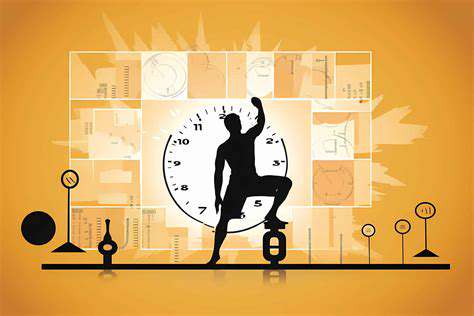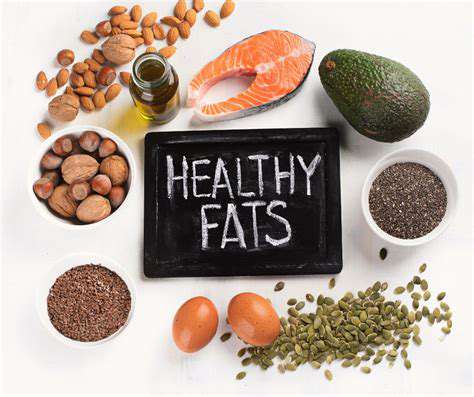How to Train for a 5K Run [Plan Included]
Nutrition and Recovery Strategies for Optimal Performance

Fueling Your Body for Optimal Performance
Proper nutrition is crucial for athletic performance and recovery. Consuming a balanced diet rich in fruits, vegetables, lean proteins, and whole grains provides the necessary nutrients to support muscle growth, repair, and energy production. A well-structured meal plan should be tailored to individual needs and activity levels, considering factors such as training intensity and duration.
Understanding the importance of macronutrients (carbohydrates, proteins, and fats) is essential. Carbohydrates are the primary source of energy for workouts, while protein is vital for muscle repair and growth. Fats provide essential fatty acids and contribute to hormone production, all of which are vital for optimal physical function.
Hydration: The Unsung Hero
Staying adequately hydrated is paramount for athletic performance. Dehydration can significantly impair physical capabilities, leading to fatigue, reduced endurance, and decreased muscle function. Proper hydration involves consuming sufficient fluids throughout the day, not just before, during, and after exercise.
The amount of fluid needed varies based on individual factors like activity level, climate, and body size. Paying attention to thirst cues and carrying a water bottle can be helpful in maintaining proper hydration levels.
Pre-Workout Nutrition: Setting the Stage
Pre-workout nutrition is crucial for optimizing performance. Consuming a meal or snack rich in complex carbohydrates provides sustained energy release throughout the workout. This helps prevent energy crashes and promotes optimal performance.
Including a source of protein in your pre-workout meal or snack supports muscle protein synthesis and aids in muscle recovery. Lean protein sources, like chicken breast or Greek yogurt, are excellent choices.
Post-Workout Recovery: Repair and Replenishment
Post-workout recovery is critical for muscle repair and replenishment. Consuming a meal or snack rich in protein and carbohydrates within an hour of finishing a workout is highly recommended to stimulate muscle protein synthesis. This promotes quicker muscle repair and reduces muscle soreness.
Including foods containing antioxidants, such as fruits and vegetables, can help reduce inflammation and oxidative stress caused by exercise.
The Role of Supplements in Recovery
While a balanced diet should be the foundation of your nutritional strategy, certain supplements may support recovery. Protein powders, for example, can be helpful for individuals struggling to meet their protein needs through diet alone. However, it's crucial to consult with a healthcare professional or registered dietitian before incorporating any supplements into your routine.
Creatine, another supplement, may help with muscle strength and power, while others such as branched-chain amino acids (BCAAs) may aid in muscle recovery and reduce muscle soreness.
Sleep Hygiene for Enhanced Recovery
Adequate sleep is a vital component of recovery. Sleep deprivation can negatively impact hormone production, impair muscle repair, and increase the risk of injury. Aiming for 7-9 hours of quality sleep each night is essential for optimal recovery.
Establishing a consistent sleep schedule and creating a relaxing bedtime routine can significantly improve sleep quality.
Mind-Body Connection and Recovery
Beyond physical recovery, mental well-being plays a significant role in overall performance and recovery. Techniques like mindfulness, meditation, and progressive muscle relaxation can help manage stress and promote relaxation, ultimately supporting recovery.
Stress management is crucial for maximizing physical recovery and mental health. Finding healthy coping mechanisms, such as engaging in hobbies or spending time in nature, can be incredibly beneficial.
Read more about How to Train for a 5K Run [Plan Included]
Hot Recommendations
-
*Guide to Managing Gout Through Diet
-
*Best Habits for Financial Well being
-
*How to Build a Routine for Better Mental Health
-
*How to Eat Healthy on a Budget [Tips & Meal Ideas]
-
*Guide to Practicing Self Acceptance
-
*How to Incorporate More Movement Into Your Day
-
*Guide to Managing Chronic Pain Naturally
-
*Guide to Building a Reading Habit for Well being
-
*Top 5 Weight Loss Supplements That Actually Work
-
*Best Exercises for Postpartum Recovery [Beyond Abdominal Work]


![Best Books on Mental Health and Well being [Recommended Reads]](/static/images/26/2025-05/CultivatingSelf-CompassionandPositiveSelf-Talk.jpg)






![Health Tips for Women After Menopause [Managing Symptoms]](/static/images/26/2025-07/ImprovingSleepQualityDuringMenopause3ARestorativeStrategies.jpg)

![Best Pre Workout Supplements Reviewed [2025]](/static/images/26/2025-07/KeyIngredients26TheirEffects.jpg)